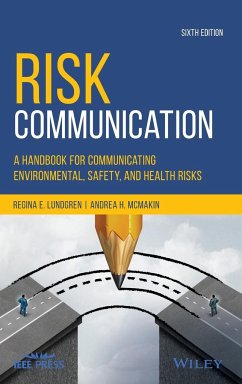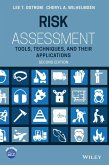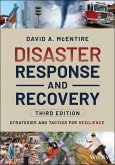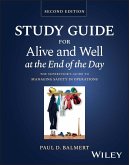THE ESSENTIAL HANDBOOK FOR EFFECTIVELY COMMUNICATING ENVIRONMENTAL, SAFETY, AND HEALTH RISKS, FULLY REVISED AND UPDATED
Now in its sixth edition, Risk Communication has proven to be a valuable resource for people who are tasked with the responsibility of understanding how to apply the most current approaches to care, consensus, and crisis communication. The sixth edition updates the text with fresh and illustrative examples, lessons learned, and recent research as well as provides advice and guidelines for communicating risk information in the United States and other countries.
The authors help readers understand the basic theories and practices of risk communication and explain how to plan an effective strategy and put it into action. The book also contains information on evaluating risk communication efforts and explores how to communicate risk during and after an emergency. Risk Communication brings together in one resource proven scientific research with practical, hands-on guidance from practitioners with over 30 years of experience in the field. This important guide:
_ Provides new examples of communication plans in government and industry, use of social media, dealing with "fake news," and new digital tools for stakeholder involvement and crisis communications
_ Contains a new chapter on partnerships which covers topics such as assigning roles and expectations, ending partnerships, and more
_ Presents real-world case studies with key lessons all risk communicators can apply.
Written for engineers, scientists, professors and students, land use planners, public health practitioners, communication specialists, consultants, and regulators, the revised sixth edition of Risk Communication is the must-have guide for those who communicate risks.
Hinweis: Dieser Artikel kann nur an eine deutsche Lieferadresse ausgeliefert werden.
Now in its sixth edition, Risk Communication has proven to be a valuable resource for people who are tasked with the responsibility of understanding how to apply the most current approaches to care, consensus, and crisis communication. The sixth edition updates the text with fresh and illustrative examples, lessons learned, and recent research as well as provides advice and guidelines for communicating risk information in the United States and other countries.
The authors help readers understand the basic theories and practices of risk communication and explain how to plan an effective strategy and put it into action. The book also contains information on evaluating risk communication efforts and explores how to communicate risk during and after an emergency. Risk Communication brings together in one resource proven scientific research with practical, hands-on guidance from practitioners with over 30 years of experience in the field. This important guide:
_ Provides new examples of communication plans in government and industry, use of social media, dealing with "fake news," and new digital tools for stakeholder involvement and crisis communications
_ Contains a new chapter on partnerships which covers topics such as assigning roles and expectations, ending partnerships, and more
_ Presents real-world case studies with key lessons all risk communicators can apply.
Written for engineers, scientists, professors and students, land use planners, public health practitioners, communication specialists, consultants, and regulators, the revised sixth edition of Risk Communication is the must-have guide for those who communicate risks.
Hinweis: Dieser Artikel kann nur an eine deutsche Lieferadresse ausgeliefert werden.








